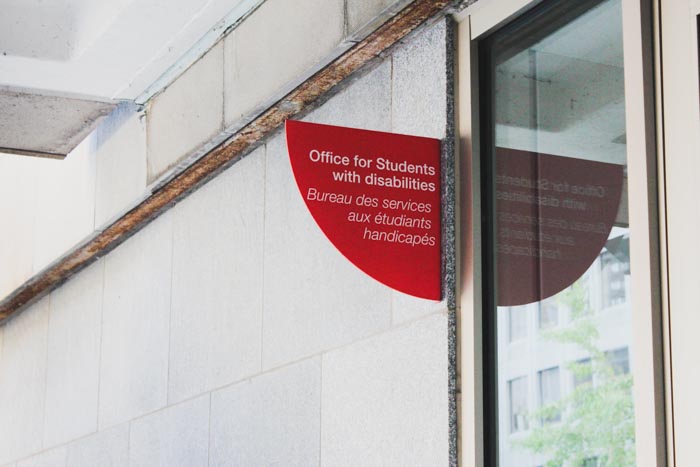The Office for Students with Disabilities (OSD) launched a new Learning Assessment Service in the first week of September that aims to make official diagnoses of learning disabilities like Attention-Deficit Hyperactivity Disorder (ADHD) more effective and financially accessible for students. While the standard cost of diagnosing learning disabilities is $1500, the new psychoeducational testing service will provide an assessment for $600, most of which can be covered by students’ health insurance.
The OSD also plans to expand its support services to include self-directed resources for academic support such as tutoring and one-on-one help. The Office will accommodate students who have yet to receive a Learning Assessment appointment by providing support during the waiting period.
Before this semester, students seeking a diagnosis for learning disabilities had to take extensive tests, pay hefty fees, and wait to be permitted extra time for tests or use laptops in courses that have a restriction. All of these procedures were coordinated through the OSD, which currently serves 2,100 McGill undergraduate, graduate, and post-graduate students on both the Downtown and Macdonald campuses. The new changes will decrease wait times while increasing student access to advising staff.
An integral part of the OSD’s changes also includes hiring more staff at the Office. According to Teri Phillips, director of the OSD, having more employees on hand will facilitate students’ access to support.
“My hope is that a greater number of students feel that they have the support and tools needed to succeed during their time at McGill,” Phillips said. “Access and support, in both of these areas, without having to go outside McGill, demonstrates a deep commitment to meeting the needs of our campus from both a student and institutional perspective. These changes represent a financial investment in areas that will have significant and measurable effects on the lives of McGill students.”
The OSD explains its changes in its “Unit Update,” a document that outlines initiatives at the Office. The Update reported that students and staff considered the OSD’s services to be up to par, but that help for students with physical disabilities had declined in recent years as a result of its shift in focus to addressing students learning disabilities and mental health issues. In response, the OSD also developed a Universal Access Team throughout August 2017, which will focus on assisting individuals with disabilities that affect their mobility, vision, and hearing impairment.
A recent infusion of funding and investment in the OSD has made these changes possible. In an email to The McGill Tribune, Deputy Provost (Student Life and Learning) Ollivier Dyens explained that the non-restricted Quebec government annual fund helped him secure $1 million funding for the OSD.
“For the last few years, the government of Quebec gave us a fund that was not restricted, meaning, we could use it for services to students in general to enhance the student with disabilities experience,” Dyens wrote. “Last year, we decided that the most pressing needs were in OSD and that the biggest positive impact on students with disabilities would be to address needs in OSD directly.”
The OSD’s changes come after many years of successfully providing support for students. Alyssa Rooster, U3 Arts, who is diagnosed with an anxiety disorder, praised the OSD for providing her a space to concentrate during exams in past years.
“[Staff at the OSD] were nothing but wonderful and helpful,” Rooster said. “[The OSD] gave me lots of resources. It helps me by letting me take my exams in a smaller room and I get to take stopwatch time, which is amazing so I can take time to calm down if I’m feeling anxious.”
With these changes, the OSD hopes to improve the academic experience for students suffering from anxiety and other disorders in years to come.








